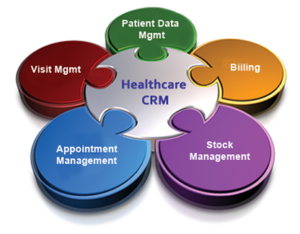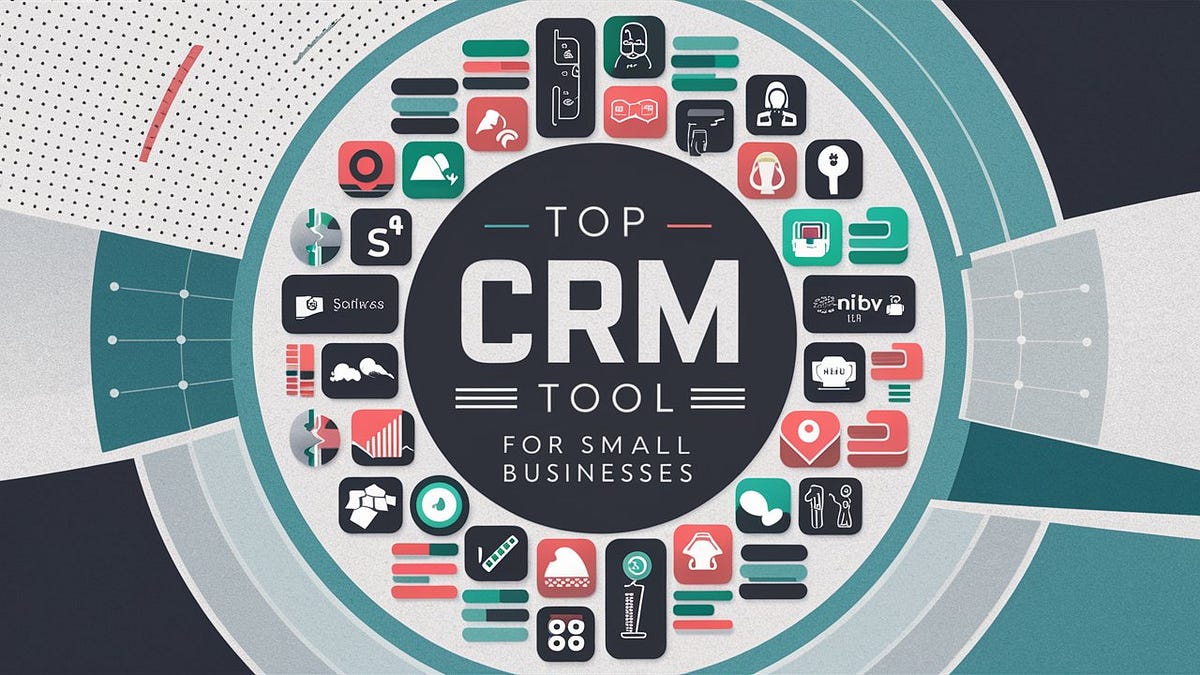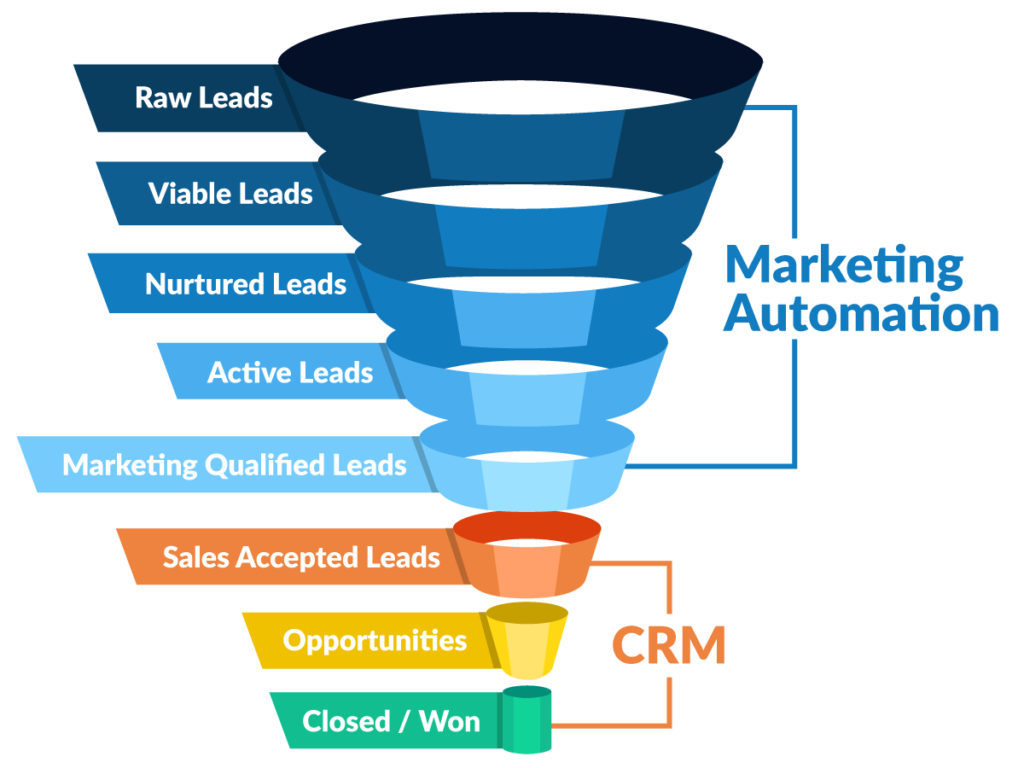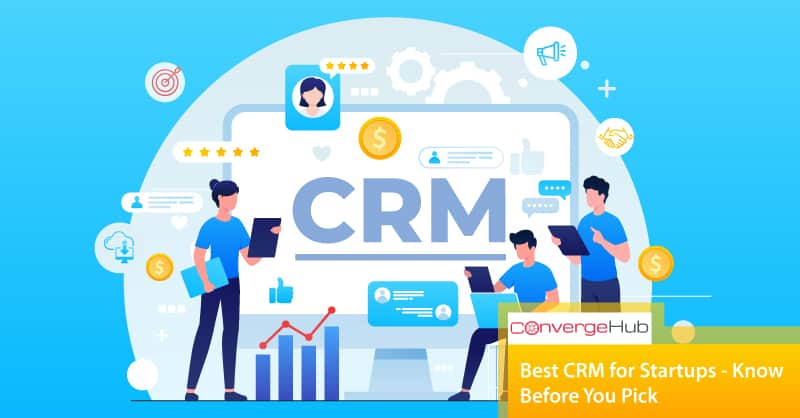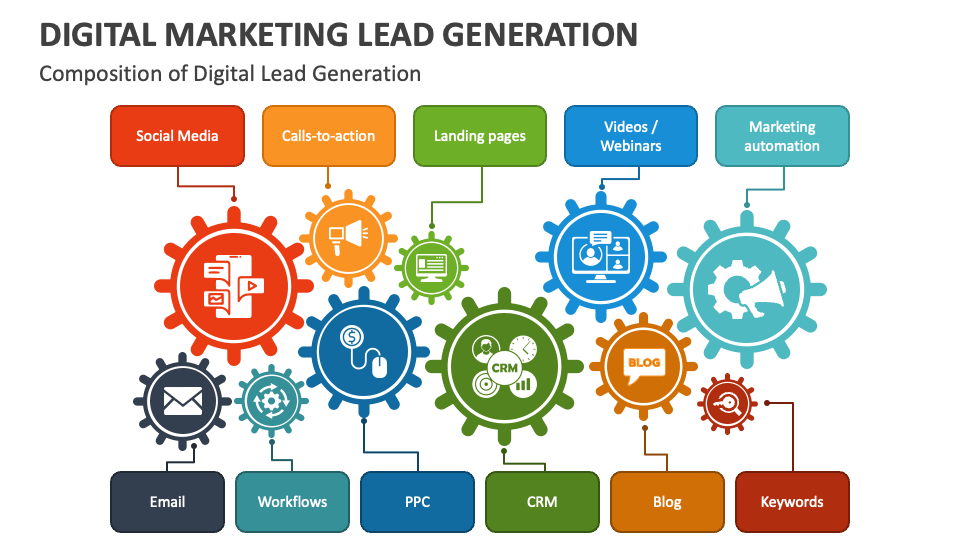Boost Your Small Business Efficiency: A Comprehensive Guide to CRM Systems

Unlocking Efficiency: Why CRM Matters for Small Businesses
Running a small business is a whirlwind. You’re juggling everything from sales and marketing to customer service and operations. In this environment, efficiency is not just desirable; it’s essential. Every minute saved, every process streamlined, contributes to your bottom line and allows you to focus on growth. This is where Customer Relationship Management (CRM) systems come in. They’re not just for the big corporations; a well-chosen CRM can be a game-changer for small businesses, providing the tools to manage customer interactions, automate tasks, and ultimately, boost efficiency.
This comprehensive guide delves into the world of CRM for small businesses. We’ll explore what CRM is, why it’s crucial, the key features to look for, and how to choose the right system for your specific needs. We’ll also discuss the benefits in detail, including how CRM can improve your sales, marketing, and customer service efforts. Finally, we’ll provide practical tips on implementation and highlight some of the best CRM options available for small businesses today. Get ready to transform your business and work smarter, not harder.
What is CRM and Why Does Your Small Business Need It?
At its core, Customer Relationship Management (CRM) is a technology that helps businesses manage and analyze customer interactions and data throughout the customer lifecycle. It’s more than just a contact list; it’s a centralized hub for all customer-related information, accessible to your entire team. This includes contact details, communication history, purchase history, and any other relevant data.
Think of it as a digital brain for your business, storing everything you need to know about your customers in one place. This allows you to:
- Improve Customer Relationships: By understanding your customers better, you can tailor your interactions and provide personalized experiences.
- Increase Sales: CRM helps you identify and nurture leads, track sales opportunities, and close deals more effectively.
- Enhance Marketing Efforts: You can segment your audience, personalize marketing campaigns, and track their performance.
- Streamline Operations: Automate tasks, such as data entry and follow-up emails, to free up your team’s time.
For small businesses, the benefits are amplified. You likely have limited resources, and every efficiency gain is significant. A CRM system helps you make the most of your time and resources, allowing you to compete more effectively with larger businesses.
Key Features to Look For in a CRM System
Choosing the right CRM system is crucial. Not all CRM platforms are created equal, and what works for one business may not be suitable for another. Here are some key features to consider when evaluating CRM options:
Contact Management
This is the foundation of any CRM. You need a system that allows you to:
- Store and organize contact information (names, addresses, phone numbers, email addresses).
- Segment contacts based on various criteria (e.g., demographics, purchase history, lead source).
- Easily search and filter contacts.
- Import and export contact data.
Look for a system that offers a user-friendly interface and allows you to customize the fields to fit your specific needs.
Lead Management
Effective lead management is essential for converting prospects into customers. Your CRM should help you:
- Capture leads from various sources (website forms, social media, email).
- Track lead interactions (emails, calls, meetings).
- Qualify leads based on predefined criteria.
- Nurture leads through automated workflows.
This feature is particularly important for businesses that rely on lead generation.
Sales Automation
Sales automation can significantly reduce the time your sales team spends on administrative tasks. Look for a CRM that offers:
- Automated email sequences.
- Task management and reminders.
- Sales pipeline visualization.
- Deal tracking and forecasting.
These features can help your sales team close deals faster and more efficiently.
Marketing Automation
Marketing automation allows you to streamline your marketing efforts and personalize your customer interactions. Consider a CRM that offers:
- Email marketing capabilities.
- Segmentation and personalization features.
- Campaign tracking and analytics.
- Social media integration.
This feature can help you reach your target audience more effectively and improve your marketing ROI.
Reporting and Analytics
Data is your most valuable asset. Your CRM should provide robust reporting and analytics capabilities, allowing you to:
- Track key performance indicators (KPIs).
- Generate custom reports.
- Analyze sales performance, marketing campaign effectiveness, and customer behavior.
These insights will help you make data-driven decisions and improve your business performance.
Integration with Other Tools
Your CRM should integrate seamlessly with other tools you use, such as:
- Email marketing platforms (e.g., Mailchimp, Constant Contact).
- Accounting software (e.g., QuickBooks, Xero).
- Social media platforms.
- Customer service tools.
Integration ensures that all your data is synchronized and accessible in one place.
Mobile Accessibility
In today’s fast-paced world, mobile access is crucial. Your CRM should be accessible on mobile devices, allowing your team to:
- Access customer information on the go.
- Update contact details and notes.
- Manage tasks and follow-ups.
This will improve your team’s productivity and responsiveness.
The Benefits of CRM for Small Businesses: A Deep Dive
Now that we’ve explored the key features, let’s delve deeper into the specific benefits a CRM system can bring to your small business.
Enhanced Customer Relationships
At its core, CRM is about building stronger customer relationships. By centralizing all customer information, you gain a 360-degree view of each customer, allowing you to:
- Personalize Interactions: Tailor your communication based on their past interactions, preferences, and purchase history.
- Provide Proactive Support: Anticipate customer needs and offer assistance before they even ask.
- Improve Customer Satisfaction: Respond to inquiries quickly and efficiently, resolving issues promptly.
- Build Customer Loyalty: Create a positive customer experience that encourages repeat business and referrals.
Happy customers are the foundation of any successful business, and CRM helps you cultivate those relationships.
Increased Sales and Revenue
CRM can significantly boost your sales performance. Here’s how:
- Improved Lead Generation: Capture leads from various sources and track their progress through the sales pipeline.
- Effective Lead Nurturing: Automate follow-up emails and personalized communication to nurture leads and move them closer to a sale.
- Streamlined Sales Process: Automate tasks, such as appointment scheduling and quote generation, to free up your sales team’s time.
- Better Sales Forecasting: Track deals, analyze sales performance, and forecast future revenue with greater accuracy.
- Higher Conversion Rates: Close more deals by providing your sales team with the information and tools they need to succeed.
By streamlining your sales process and providing your team with the right tools, CRM can directly impact your bottom line.
Improved Marketing Effectiveness
CRM empowers your marketing team to create more targeted and effective campaigns:
- Audience Segmentation: Segment your audience based on demographics, behavior, and purchase history to deliver more relevant messages.
- Personalized Marketing: Customize your marketing messages to resonate with individual customers and increase engagement.
- Campaign Tracking and Analytics: Track the performance of your marketing campaigns and identify what’s working and what’s not.
- Increased Marketing ROI: Optimize your marketing spend and generate more leads and sales from your marketing efforts.
With CRM, you can move beyond generic marketing and create campaigns that truly connect with your audience.
Streamlined Operations and Increased Efficiency
CRM can automate various tasks and streamline your business operations, freeing up your team’s time and resources:
- Automated Data Entry: Reduce manual data entry and eliminate errors by automating the process.
- Task Management and Reminders: Set up automated reminders for follow-ups, appointments, and other important tasks.
- Improved Communication: Centralize all customer communication, ensuring that everyone on your team has access to the same information.
- Reduced Administrative Costs: Automate tasks and streamline processes to reduce administrative overhead.
By automating repetitive tasks, CRM allows your team to focus on more strategic initiatives.
Better Data-Driven Decision Making
CRM provides valuable insights into your customers and business performance. This data allows you to:
- Track Key Performance Indicators (KPIs): Monitor your sales, marketing, and customer service performance.
- Generate Custom Reports: Create reports that provide insights into specific areas of your business.
- Identify Trends and Opportunities: Analyze customer behavior and identify trends that can inform your business strategy.
- Make Data-Driven Decisions: Use data to make informed decisions about your sales, marketing, and customer service efforts.
By leveraging the power of data, you can make more informed decisions and improve your business performance.
Choosing the Right CRM for Your Small Business: A Step-by-Step Guide
Selecting the right CRM system can be daunting, but following a structured approach can simplify the process. Here’s a step-by-step guide:
1. Assess Your Needs
Before you start looking at CRM systems, take the time to understand your business needs. Consider the following:
- What are your business goals? What do you want to achieve with a CRM system?
- What are your current pain points? What challenges are you facing in managing your customers and sales?
- What are your specific requirements? What features do you need in a CRM system?
- Who will be using the CRM? Consider the needs of your sales, marketing, and customer service teams.
Creating a clear picture of your needs will help you narrow down your options and choose the right system.
2. Define Your Budget
CRM systems come in various price ranges, from free to enterprise-level solutions. Determine your budget before you start evaluating options. Consider the following costs:
- Subscription fees: Most CRM systems operate on a subscription model, with monthly or annual fees.
- Implementation costs: Some systems require professional implementation services.
- Training costs: You may need to train your team on how to use the CRM system.
- Ongoing maintenance costs: Consider the cost of ongoing support and maintenance.
Setting a budget will help you stay within your financial constraints.
3. Research CRM Options
Once you know your needs and budget, start researching CRM options. Consider the following:
- Read reviews: See what other small businesses are saying about different CRM systems.
- Compare features: Compare the features of different CRM systems to see which ones best meet your needs.
- Consider scalability: Choose a CRM system that can scale with your business as it grows.
- Look for integrations: Ensure that the CRM system integrates with the other tools you use.
Take your time and do your research to find the best CRM system for your needs.
4. Request Demos and Trials
Narrow down your list to a few potential CRM systems and request demos or free trials. This will allow you to:
- Get a feel for the user interface: See how easy the system is to use.
- Test the features: Try out the features that are important to you.
- Evaluate the support: See how responsive and helpful the vendor’s support team is.
Take advantage of demos and trials to make an informed decision.
5. Implement and Train Your Team
Once you’ve chosen a CRM system, it’s time to implement it and train your team. This involves:
- Data migration: Import your existing customer data into the CRM system.
- Customization: Customize the CRM system to fit your specific needs.
- Training: Train your team on how to use the CRM system.
- Ongoing support: Provide ongoing support to your team as they use the CRM system.
Proper implementation and training are essential for the success of your CRM system.
Top CRM Systems for Small Businesses: A Quick Overview
Here’s a brief overview of some of the top CRM systems for small businesses:
Zoho CRM
Zoho CRM is a popular and affordable option that offers a wide range of features, including contact management, lead management, sales automation, and marketing automation. It’s known for its user-friendly interface and robust customization options. It is a great option for small businesses looking for a comprehensive CRM solution.
HubSpot CRM
HubSpot CRM is a free CRM system that offers a good balance of features and ease of use. It’s a great option for small businesses that are just getting started with CRM. It offers excellent integration with other HubSpot tools, making it a powerful solution for inbound marketing and sales.
Salesforce Sales Cloud Essentials
Salesforce Sales Cloud Essentials is a scaled-down version of Salesforce’s flagship CRM platform, designed specifically for small businesses. It offers a powerful set of features, including sales automation, lead management, and reporting. While more expensive than some other options, it offers a comprehensive and scalable solution.
Pipedrive
Pipedrive is a sales-focused CRM that is known for its visual pipeline management and ease of use. It’s a great option for small businesses that want to focus on sales process optimization. The interface is intuitive, making it easy for sales teams to adopt and use.
Freshsales
Freshsales, by Freshworks, is a user-friendly CRM designed to simplify sales processes. It offers a range of features, including lead management, sales automation, and built-in phone and email capabilities. It is known for its affordability and ease of use, making it suitable for businesses of all sizes.
Tips for Successful CRM Implementation
Implementing a CRM system is a significant undertaking. Here are some tips to ensure a successful implementation:
1. Start Small
Don’t try to implement all the features of your CRM system at once. Start with the core features that are most important to your business and gradually roll out additional features over time. This will help you avoid overwhelm and ensure a smoother implementation process.
2. Clean Up Your Data
Before you import your data into your CRM system, take the time to clean it up. Remove duplicate records, correct errors, and standardize your data format. This will ensure that your data is accurate and reliable.
3. Train Your Team
Provide comprehensive training to your team on how to use the CRM system. Make sure they understand how to enter data, use the features, and generate reports. Offer ongoing support and training to ensure that your team is comfortable using the system.
4. Customize Your CRM
Customize your CRM system to fit your specific business needs. Configure the system to track the information that is most important to you. Use custom fields, workflows, and reports to tailor the system to your business processes.
5. Get Buy-in from Your Team
Get buy-in from your team by involving them in the implementation process. Solicit their feedback and address their concerns. Make sure they understand the benefits of using the CRM system and how it will help them do their jobs more effectively.
6. Monitor and Evaluate
Regularly monitor and evaluate the performance of your CRM system. Track key metrics, such as sales conversion rates, customer satisfaction, and marketing ROI. Use this data to identify areas for improvement and optimize your CRM system.
Conclusion: Embracing CRM for a More Efficient Future
In the competitive landscape of today’s business world, efficiency is paramount. CRM systems are no longer a luxury; they are a necessity for small businesses that want to thrive. By centralizing customer data, automating tasks, and providing valuable insights, CRM empowers you to build stronger customer relationships, increase sales, and improve your overall business performance.
The journey to implementing a CRM system may seem daunting, but the rewards are well worth the effort. By following the steps outlined in this guide, you can choose the right CRM for your small business, implement it effectively, and unlock its full potential. Embrace CRM, and you’ll be well on your way to a more efficient, productive, and successful future.
So, take the first step. Evaluate your needs, research your options, and choose the CRM system that’s right for you. Your small business will thank you for it. The future of your business is in your hands, and CRM is the key to unlocking its full potential. Start today and watch your business thrive!

